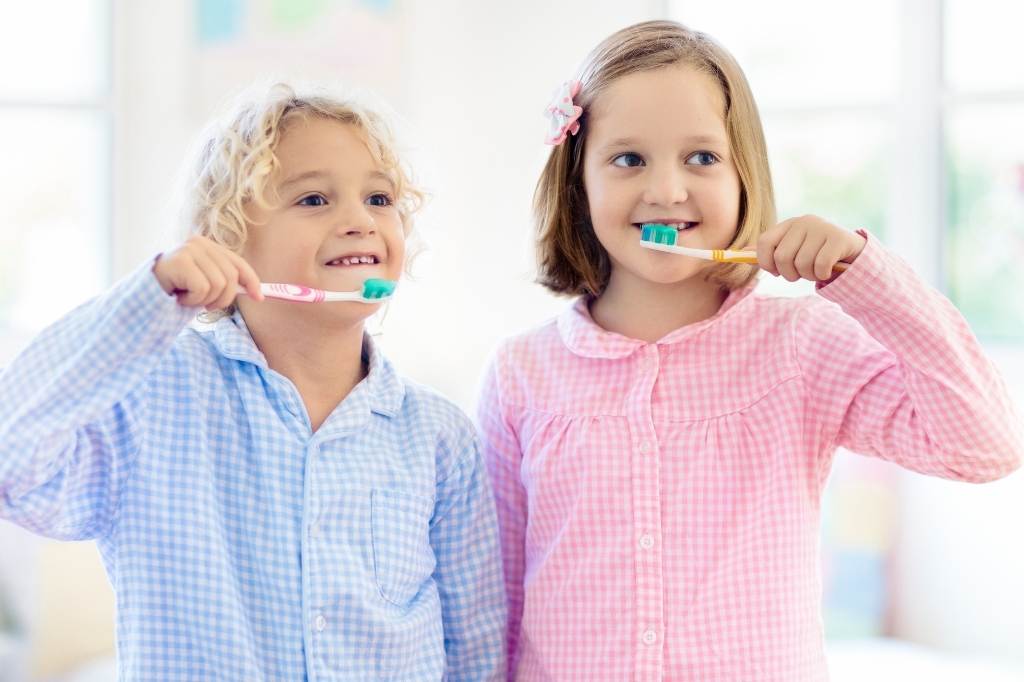Dental hygiene is extremely important for kids. Teaching them how to properly brush and floss their teeth will help them maintain good oral health throughout their lives. However, we know that sometimes keeping up with good dental hygiene for the kids can seem like a chore. That’s why we’ve put together some tips to help instill healthy habits and teach your children how to keep their mouth healthy in the future.
Develop good dental health habits.
The first step in teaching your kids good dental habits is to ensure that they are brushing their teeth properly. Help them to brush thoroughly, using circular motions and focusing on all sides of their teeth. They should also be flossing daily, using an up-and-down motion to remove any plaque or food particles from between their teeth. Make sure to supervise your child while they brush their teeth, at least until they’re old enough to do it on their own.
It’s also important to encourage your kids to eat healthy foods and drinks. A balanced diet is essential for good oral health, so make sure that your kids are getting plenty of fruits, vegetables, and water. Avoid sugary snacks and drinks, as these can cause cavities.
Encourage your child to brush their teeth twice a day, in the morning and at night. You can also set up a reward system to incentivize them to brush regularly. For example, you can give them a sticker every time they brush their teeth.
Start early!
Introduce your child to good dental habits when they’re young. Start taking care of your children’s teeth as soon as they erupt and show them how to brush their teeth properly as they get old enough to start brushing themselves!
Explain the importance of brushing and flossing teeth regularly.
No one wants to be a grown-up with bad breath and missing teeth! Explaining the importance of proper brushing and flossing will help your children understand why good habits matter. You can tell them that it will help prevent cavities and keep their teeth and gums healthy as they get older. You can also show them pictures or videos of what happens to teeth when they’re not brushed regularly – this may help them understand the importance of good dental hygiene.
You can also ask them how their teeth are doing, and let them know that you’re always there to answer any questions they have. This will help them feel comfortable talking to you about their dental health, and it will show them that you’re invested in their oral care.
Make it fun!
Kids are less likely to fuss over brushing their teeth when the process is fun!
One way to make brushing teeth more fun for your child is to let them choose their own toothbrush and toothpaste. There are many different designs and flavors of toothpaste available, so they’re sure to find one that they like. And, letting them pick out their own toothbrush will make them more likely to use it regularly.
You can also sing a song about brushing teeth while you brush yours, or play a game where your child has to find all the spots their toothbrush missed.
Whatever you do, just make sure that brushing teeth is something that your child looks forward to, not something they dread.
Set a good example.
Children learn from watching their parents – one of the best ways to teach your child good dental habits is to set a good example yourself. Brush your teeth alongside them, and let them see you flossing and using mouthwash. They’re more likely to follow your lead if they see you doing it as well.
Schedule regular dentist visits.
Finally, make sure to take your kids to the dentist for regular checkups. The dentist can spot any problems early and provide treatment if necessary. These regular visits will help to keep your kids’ teeth and gums healthy!
By following these tips, you can teach your kids good dental habits that will last a lifetime. Start today, and your kids will thank you for it!
Need to schedule your child’s next appointment? Call our office at any of our five Nevada offices in Reno, Sparks, Sun Valley, Stead, and Damonte to schedule a consultation. We will be happy to answer any questions you have and get your oral health on track.


